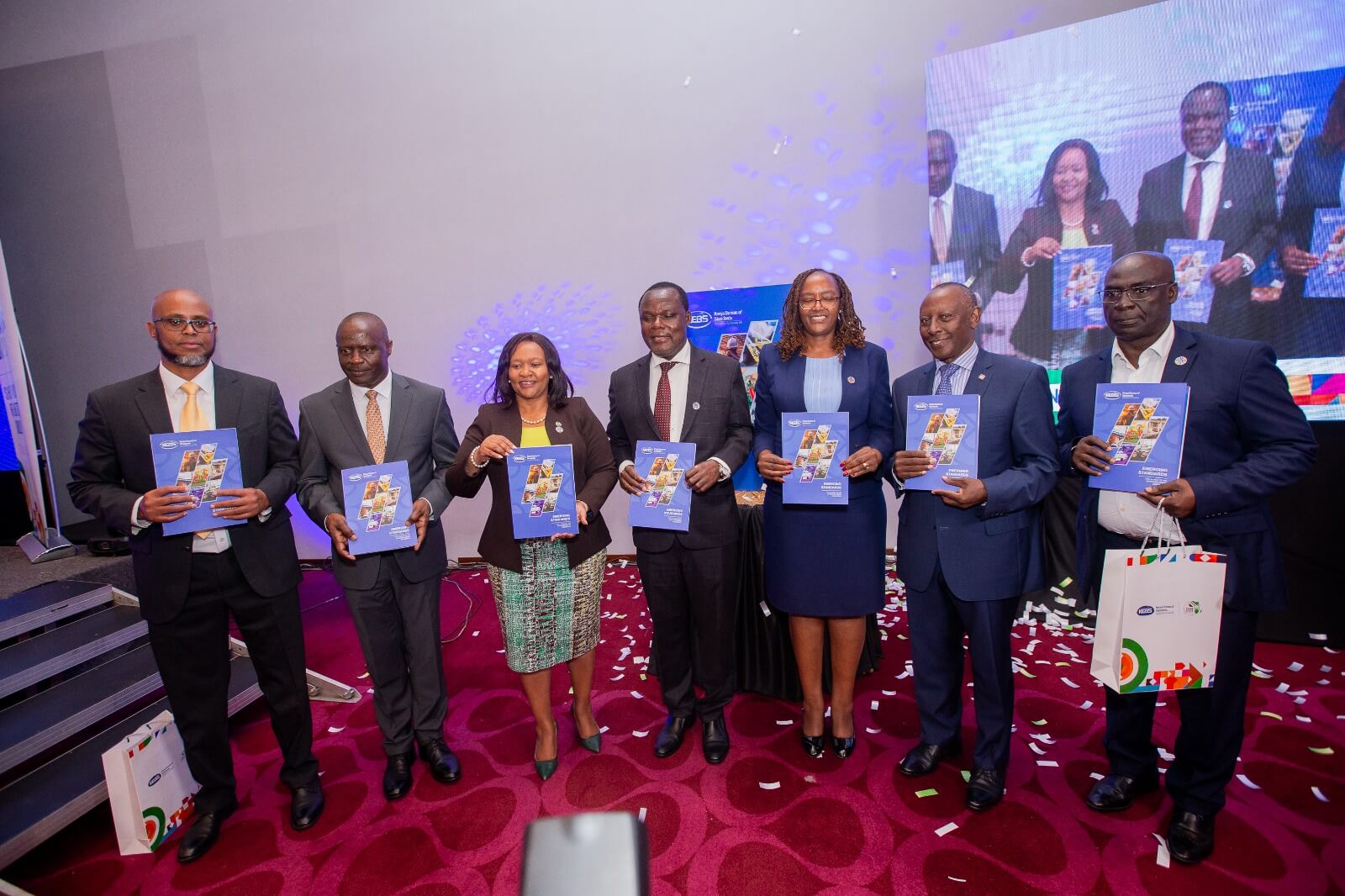
Our Projects are
Transforming African Trade
Quick Contacts
2nd Floor, Fidelity Insurance Centre Waiyaki Way, Westlands

The Kenya Bureau of Standards (KEBS) has today unveiled 416 new emerging standards, signalling the country’s relentless pursuit of excellence, safety, and innovation.
Ministry of Investments, Trade, and Industry (MITI) Cabinet Secretary (CS) Rebecca Miano applauded KEBS, underscoring its pivotal role in realising the broader goals of the Kenya Kwanza Government.
“Through KEBS’s initiatives, we are ensuring that our products are globally competitive and reflect our nation’s dedication to safety, quality, and innovation,” she said.
Speaking during the World Standards Day celebrations, the CS said that these standards form the backbone of the aspirations of Kenya Vision 2030.
Expanding on the significance of the standards, KEBS Managing Director Ms. Esther Ngari emphasised their role in diverse sectors.
“Today’s launch showcases our commitment to progress and the promotion of safety, quality, and sustainability,” Ms. Ngari said.
Ms. Ngari noted that ten of the newly introduced standards are geared towards intelligent transport systems, a move strategically aligned with the objectives of Sustainable Development Goal (SDG) 3, aiming to mitigate road traffic accidents.
State Department of Industry Principal Secretary (PS), Dr. Juma Mukhwana, echoed the CS’s sentiments: “The unveiling of these new standards marks a decisive step forward, bridging gaps in various sectors and enhancing the efficiency of our industries.”
He praised KEBS’s efforts in ensuring that sectors such as healthcare and nutrition have robust standards and stringent measures which ensure the safety of medical devices, notably syringes, directly impacting the reduction of disease spread.
“By setting high benchmarks for products like baby food, KEBS provides the assurance of safety and optimal nutrition to our citizens,” he added.
Mr. Eddy Njoroge, Advisor to the President of the International Organisations for Standardisation (ISO), said the organisation has delved deeper into the global implications of the standards.
“International standards are important in shaping a world where well-being is universal,” Mr. Njoroge remarked.
Mr. Njoroge highlighted the role of standards in attaining SDG 3, which calls for the attainment of good health and well-being.
He pointed out the swift development of the COVID-19 vaccines and the quality control of essential equipment, saying that this demonstrated the tangible benefits of global collaboration.
Mr. Njoroge further urged for the active participation of developing nations in the standard creation process.
“Their inclusion is vital. It ensures that unique challenges and requirements are recognised and incorporated into the global framework, fostering an environment of mutual growth and understanding,” he emphasised.
KEBS National Standards Council Chairman Peter Munyiri, who was recently nominated as Kenya’s Ambassador to India, highlighted the potential for stronger Kenya-India collaboration in healthcare.
“Beyond medical tourism, there lies a vast realm of knowledge exchange, partnership building, and standard harmonization. This collaboration promises a brighter future, rich with opportunities and innovations for both nations,” Munyiri noted.
He reaffirmed his support for Micro, Small, and Medium Enterprises (MSMEs) in Kenya, recognising them as the heart of innovation and economic growth.
“MSMEs play a vital role in our economy, and our dedication to providing them with the highest quality standards remains unwavering,” he stated.
TradeMark Africa Country Director Ahmed Farah said that their partnership with KEBS has resulted in a 91.6% reduction in turnaround time for test results at KEBS satellite labs and increased the accuracy of calibration testing by about 30%.
“We strive to ensure that we maintain high-quality standards, especially for products meant for export, and reduce the costs associated with trade,” he said.
The event celebrated the essence of standards in fostering a sustainable and progressive nation, and the collective voices resonated with the sentiment that standards are more than guidelines; therefore, they are the embodiment of Kenya’s vision for a brighter, safer, and more innovative future.
Read original article
Disclaimer: The views and opinions expressed in this article are those of the authors and do not necessarily reflect the official policy or position of TradeMark Africa.